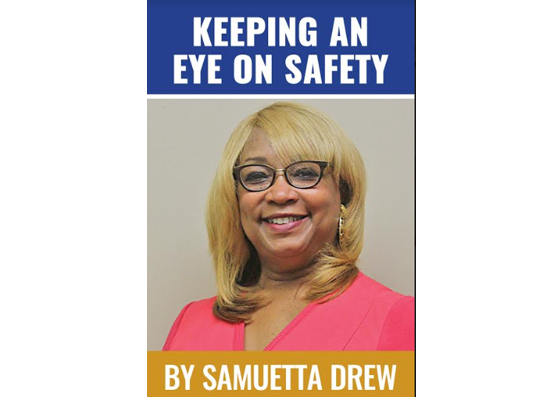By Samuetta Hill Drew
With the COVID-19 numbers continuing to spike across our nation and especially our state, Governor, Kay Ivey, has issued a mandatory order that everyone under the age of two must wear a facial covering when in a public location. As you are aware, Jefferson County, Alabama along with the City of Birmingham was already under a mandatory order to wear face coverings for the same public health reasons.
In recent weeks, many other states and cities have issued similar orders. Many well-known national retail and grocery store chains have joined these various states and municipalities by mandating their customers must wear face coverings when patronizing their stores.
With all the various mandates, many individuals have begun new start-up mask businesses, some major fashion vendors now offer decorative masks, while others have opted to make masks for themselves, neighbors, family members and friends. The Centers for Disease Prevention and Control (CDC) has a website link about how to properly make a mask.
With this in mind, let us explore some safety factors to consider when either purchasing or making a face mask. It is important to note that cloth face masks do not substitute for social distancing nor offer the same protection as N95 which should be reserved for health care and front-line workers.
Before you purchase or make a mask you need to be aware of the fabric. Not all fabrics make for effective masks. Some fabrics are better suited for filtering virus particles than others. Some fabrics barely do an effective job, like bandanas.
Canvas fabrics are recommended as one of the best to prevent virus particles from sneaking through. All fabric types have different sized spacing between individual yarns. This means some fabrics will have larger or smaller “holes” depending on its construction. This will determine their effectiveness against the coronavirus COVID-19. Fabrics with larger holes will naturally allow COVID-19 droplets through easier than those with smaller holes like canvas.
Also, tightly woven fabrics offer better protection. Some studies have shown tea towels are good for making masks because they offer good protection. Also, sheets with a high thread count are recommended.
Another safety item to consider when purchasing or making a face mask is ensuring it has multiple layers. Multiple layers of fabric can increase the effectiveness of the mask. You do not want it so thick you cannot breathe, but at least a double layer is preferred.
As we all Keep an Eye on Safety during this pandemic, these safety tips should be helpful in determining the best mask for you and your love ones to purchase or make. Next week’s article will share additional tips on this topic since this is a new paradigm for us all.




